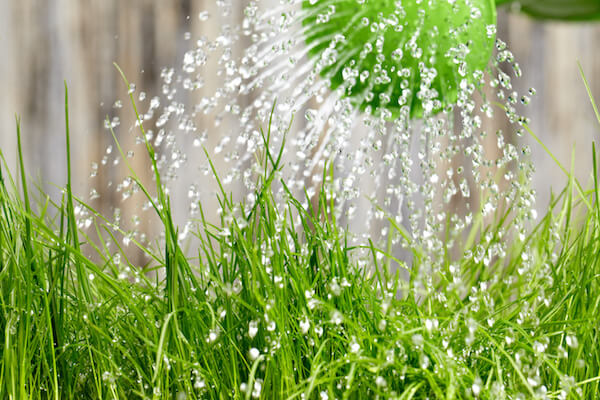
Let Your Lawn Tell You When to Water
What Do You Mean, My Lawn Will Tell Me When It Needs Water?
Well, it will not exactly shout from the top of its lungs, but it will “speak” to you nonetheless.
Keep in mind that the species of grass, type of soil, amount of shade, and the season will affect a lawn’s need for water. A rain gauge will measure how much rainfall has occurred and can help determine how far you can push back your irrigation schedule. Luckily, most professionally installed irrigation systems now have rain sensors.
Florida’s rainfall changes dramatically with the season. Irrigation systems should be adjusted to prevent over watering. In fact, the University of Florida recommends waiting until your lawn shows you that it needs to be watered. Observe your grass closely to determine if its need for water is being met. Water stress has some pretty distinct signs that will let you know when the lawn is in need.
Signs it’s Time to Water
- Lawns stressed by drought struggle to remain green. When you notice a blue-gray shade creep into your grass, it is time to water.
- When established leaf blades begin to whither or curl up, your grass is suffering from drought stress. As grass attempts to conserve water usage, they will fold into a V-shape. Once the V-stage occurs, it is time to water.
- If the lawn is drought-stressed, footsteps or tire tracks will hang out long after they were left.
Soil conditions influence how much and how often you will need to water. Lawns with a high clay content usually require less water than those with sandy soil. Sandy soil dries out pretty quickly because it struggles to retain water. Compact soil can prevent water absorption and cause your lawn to be waterlogged.
Regional climate conditions should also be considered when establishing an irrigation schedule. Things like temperature, humidity, wind, and the amount of sunlight a lawn is exposed to will also affect the amount of water needed for a healthy lawn.
Overwatering: Florida’s Turfgrass Nemesis
It may seem like too much water would be better than not enough, quite the opposite is true. Overwatering can even kill a lawn in the long run. Too much water over time can cause a shallow root system, which actually reduces a lawn’s drought tolerance. An increase in disease and insect infestation is common in overwatered lawns, as is increased thatch. Weeds such as sedges and dollarweed grow like wildfire when overwatering happens consistently.
Avoid watering to the point you cause run-off. Not only is it a waste of a limited resource, but it increases the likelihood of disease and weed problems. If you use fertilizer to promote a healthy lawn, the run-off can pollute surrounding waterways and the ground aquifer.
What is the Watering “Sweet Spot?”
Early morning watering prevents much of the evaporation that occurs if you water midday. Even late morning watering can be bad. Increasing the amount of time water remains on the grass can cause an increase in disease. Proper timing is key to an effective irrigation system. Your lawn tells you it needs water when you see about 30 to 50 percent wilt, or it has reached the V-stage.
Because most Florida soils are sandy, Duda Sod reminds you that it only takes about and inch of water to wet the top 12 inches of soil. This is the root zone. Once the grass indicates it is in need of water and the soil appears dry, it will only take from 1/2 to 3/4 inch of water to wet the root zone.
Is There Anything I Can Do To Help My Lawn Between Waterings?
Whether you live in an area with mandated watering regulations or not, encouraging deeper roots can help your lawn become more drought-tolerant. Be sure you wait until your lawn shows clear signs of drought and only water 1/2 to 3/4 inch to wet the root zone. Too little or too much watering can cause shorter root systems to develop. Setting your mower to the highest height for your grass type will also encourage the roots to grow deeper.
If you have any questions about irrigation for your lawn, the lawn experts at Duda Sod can help you maintain a lush, green lawn year round.